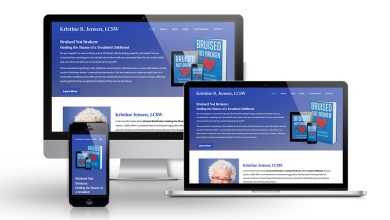The Importance of Aptitude Assessments in Recruitment

Discover why aptitude assessments are crucial in modern recruitment. Learn about integrating personality & psychometric tests for better hiring decisions.
In today’s competitive job market, finding the right talent is more crucial than ever for businesses striving to thrive and succeed. This search for top-notch candidates has led to the evolution of recruitment processes, with aptitude assessments emerging as a pivotal tool in evaluating candidate potential. But what exactly are aptitude assessments, and why are they gaining such prominence in recruitment strategies?
Simply put, aptitude assessments are evaluations designed to measure a candidate’s innate abilities, skills, and potential to excel in a particular role. Unlike traditional interviews or resumes, which may not always provide a comprehensive understanding of a candidate’s capabilities, aptitude assessments offer a standardized and objective means of assessment.
In this blog, we’ll delve into the importance of aptitude assessments in modern recruitment practices. We’ll explore the various types of assessments used, discuss why they matter in the hiring process, and examine how they contribute to creating a more efficient and effective recruitment strategy. So, whether you’re a hiring manager looking to optimize your talent acquisition process or a job seeker aiming to understand what to expect in assessments, read on to discover the significance of aptitude assessments in today’s job market.
Understanding Aptitude Assessments
Aptitude assessments are invaluable tools used by employers to gain insight into a candidate’s cognitive abilities and potential for success in a specific role. These assessments come in various forms, each tailored to measure different aspects of a candidate’s aptitude.
Cognitive abilities assessments evaluate an individual’s reasoning, problem-solving, and critical thinking skills. Numerical reasoning tests assess a candidate’s ability to interpret and manipulate numerical data, while verbal reasoning tests focus on language comprehension and analytical skills. Abstract reasoning assessments, on the other hand, gauge a candidate’s ability to identify patterns and solve complex problems without relying on prior knowledge.
By understanding the nuances of these aptitude assessments, employers can better assess a candidate’s suitability for a role beyond what traditional interviews and resumes reveal. These assessments provide objective data points that enable employers to make more informed hiring decisions, ultimately leading to better matches between candidates and roles. As such, aptitude assessments play a vital role in streamlining the recruitment process and ensuring that organizations build high-performing teams equipped to meet their goals.
Why Aptitude Assessments Matter in Recruitment
Aptitude assessments hold significant importance in modern recruitment practices due to their ability to predict a candidate’s job performance accurately. Unlike traditional methods like interviews or resumes, aptitude assessments provide a standardized and objective way to evaluate candidates’ capabilities. This objectivity helps mitigate biases that may arise during the hiring process, ensuring fair treatment for all applicants regardless of their background or demographics.
Moreover, aptitude assessments are cost-effective tools for recruiters. By accurately identifying candidates who possess the necessary skills and abilities for a role, companies can reduce turnover rates and minimize the costs associated with hiring and training new employees. Additionally, aptitude assessments contribute to enhancing the overall candidate experience by providing a transparent and structured evaluation process.
Integrating Personality Tests into Aptitude Assessments
The personality test serves as a valuable additions to aptitude assessments in recruitment, offering insights into candidates’ behavioral traits and cultural fit within an organization. While aptitude assessments focus on cognitive abilities and skills, personality tests delve into candidates’ characteristics, such as communication style, work preferences, and interpersonal skills.
By integrating personality tests into the recruitment process, employers gain a more holistic understanding of candidates, enabling them to assess not only their ability to perform specific tasks but also their compatibility with the company culture and team dynamics. For example, a candidate may excel in cognitive abilities but may struggle to collaborate effectively with others due to personality mismatches.
Moreover, personality tests help organizations build diverse and inclusive teams by identifying candidates who bring unique perspectives and strengths to the table. By considering both aptitude and personality factors, recruiters can make more well-rounded hiring decisions that lead to successful long-term employee engagements and contributions to organizational goals.
The Role of Psychometric Tests in Aptitude Assessments
The psychometric test plays a crucial role in aptitude assessments, providing valuable insights into candidates’ psychological attributes and preferences. These tests measure various aspects of an individual’s personality, cognitive abilities, and emotional intelligence, offering a deeper understanding of their suitability for a particular role.
One key advantage of psychometric tests is their ability to assess candidates’ soft skills, such as communication, teamwork, and leadership qualities. These skills are often difficult to evaluate through traditional means but are essential for success in many roles, especially those requiring interaction with clients, colleagues, or stakeholders.
Additionally, psychometric tests help identify candidates who possess the resilience and adaptability needed to thrive in dynamic work environments. By evaluating traits like stress tolerance and problem-solving abilities, these tests enable employers to gauge how candidates are likely to perform under pressure and navigate challenges effectively.
Furthermore, psychometric tests contribute to fostering a positive candidate experience by providing individuals with valuable insights into their own strengths and areas for development. This self-awareness not only helps candidates prepare for interviews but also empowers them to make more informed career decisions.
Best Practices for Implementing Aptitude Assessments
Implementing aptitude assessments in the recruitment process requires careful planning and adherence to best practices to ensure effectiveness and fairness. Here are some key guidelines to follow:
- Aligning Assessments with Job Requirements: It’s essential to tailor aptitude assessments to reflect the specific skills and competencies required for the role. This involves collaborating closely with hiring managers to identify critical job tasks and competencies and designing assessments that accurately measure these criteria.
- Ensuring Fairness and Diversity in Assessment: Aptitude assessments should be free from bias and discrimination to ensure fair treatment of all candidates. This includes using validated assessment tools, ensuring cultural sensitivity in assessment content, and providing accommodations for candidates with disabilities or diverse backgrounds.
- Providing Feedback to Candidates: Offering constructive feedback to candidates after aptitude assessments can enhance the overall candidate experience and promote transparency in the recruitment process. Feedback should be specific, actionable, and focused on areas for improvement, helping candidates understand their strengths and areas for development.
Conclusion
In conclusion, aptitude assessments are integral to modern recruitment processes, offering a standardized and objective means of evaluating candidates’ abilities and potential for success in a role. By understanding the various types of aptitude assessment available and their significance in recruitment, employers can make more informed hiring decisions and build high-performing teams.
Furthermore, integrating personality and psychometric tests into aptitude assessments enhances the depth and accuracy of candidate evaluations, providing insights into both cognitive abilities and behavioral traits. This holistic approach not only ensures better matches between candidates and roles but also contributes to creating diverse and inclusive work environments.
As organizations strive to attract and retain top talent in a competitive job market, leveraging aptitude assessments and adhering to best practices in their implementation is essential. By aligning assessments with job requirements, ensuring fairness and diversity, and providing feedback to candidates, employers can optimize their recruitment processes and build teams poised for success.









